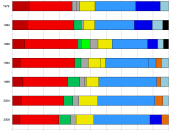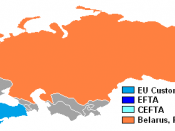A trade mark serves two ends: on the one hand it ensures the holder of the trade mark the goodwill associated with the marked product; on the other hand it informs the consumer that the product is of specific kind as opposed to a copy, 'enabling the consumer who acquired them to repeat the experience, if it proves to be positive, or to avoid it, if it proves to be negative, on the occasion of a subsequent purchase. Case T-79/00 Rewe-Zentral v OHIM (LITE [2002] ECR II-705' (Bainbridge 2005 [online])
The registration of a trade mark makes it more difficult for competitors to take advantage of the reputation that is being associated with a certain product or company.
Within trade mark legislation the "specific subject matter" further specifies the rights of a trade mark holder as entitling 'the owner to exclude others from making use of it without permission, even if the effect is to exclude them from the market: This has been specified by the ECJ in cases Philips Electronics NV v.
Ingman Ltd [1998] 2 CMLR 839, 853 / Sandvik AB v. KR Pfiffner (UK) Ltd [1999] EuLR 755, 787; HMSO v. Automobile Association [2001] ECC 272, 278.' (HMCS 2002 [online])
Another crucial term is the "essential function" which is described by the ECJ as being a guarantee of origin; the trade mark 'must offer a guarantee that all goods or services bearing it have been manufactured or supplied under the control of a single undertaking which is responsible for their quality.' (Bird&Bird 2003 [online])
To ensure that guarantee of origin, the proprietor has to be protected against competitors trying to take advantage of the reputation of that trade mark by selling products unlawfully bearing it.
In the context of the European Union the following natural and legal...


